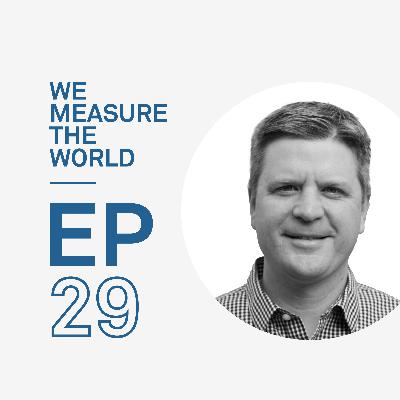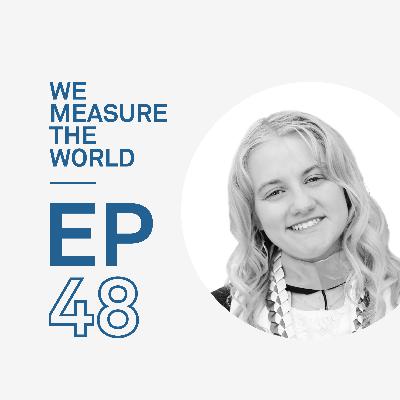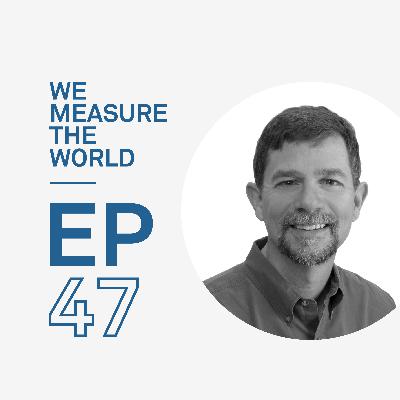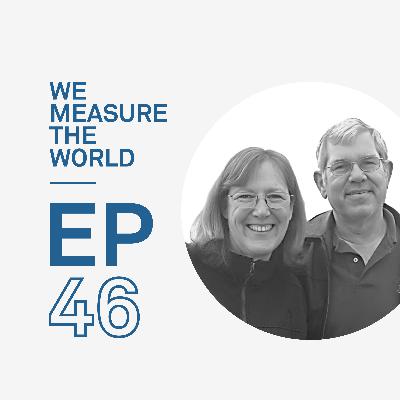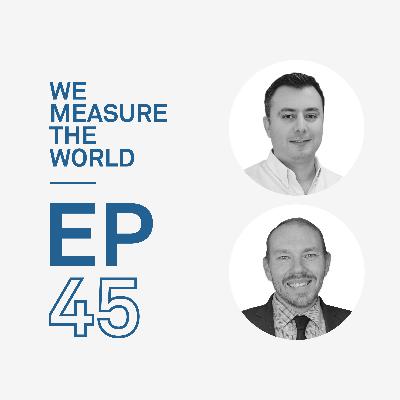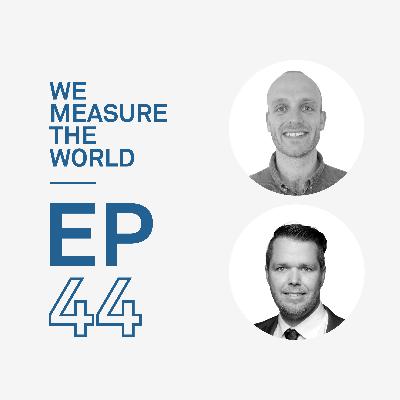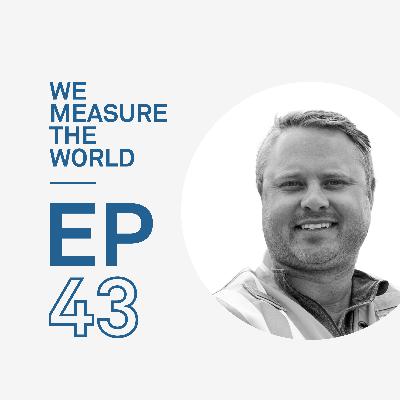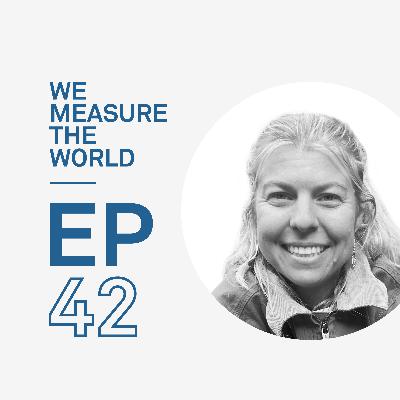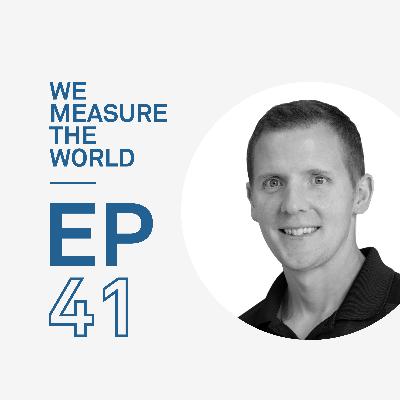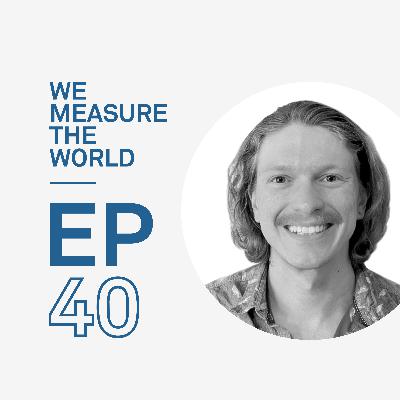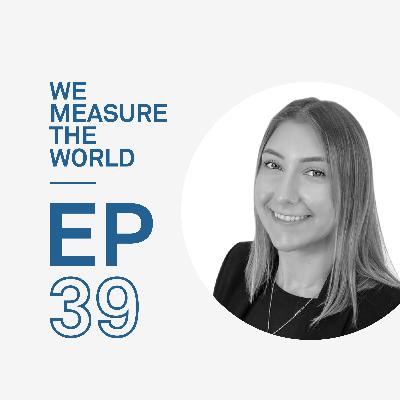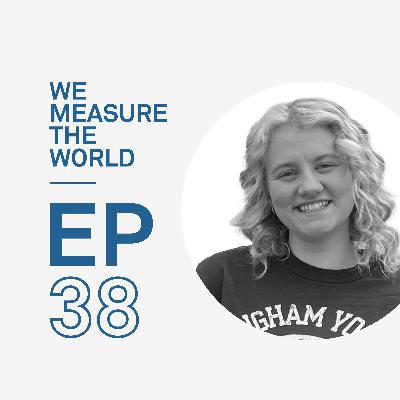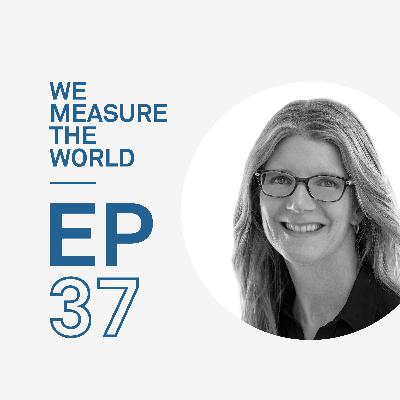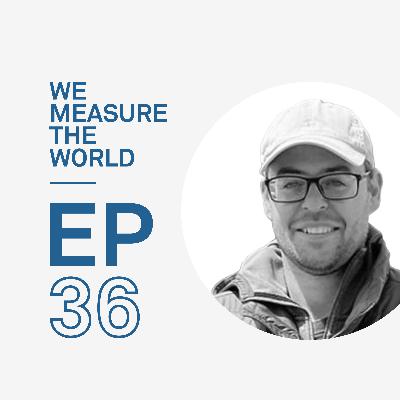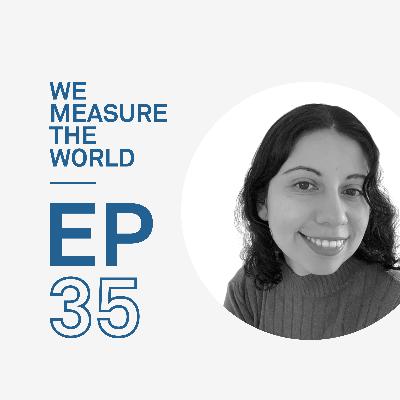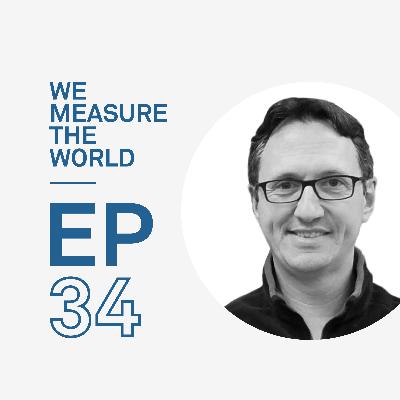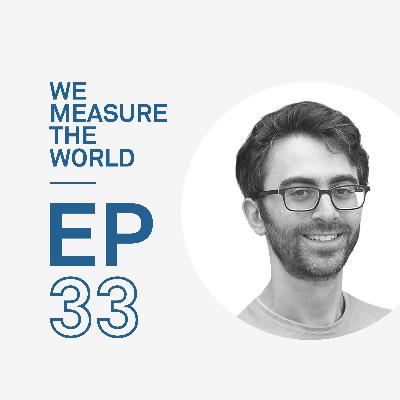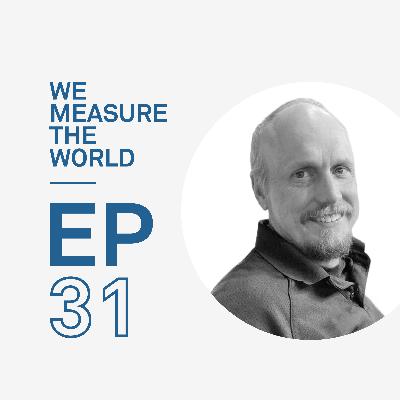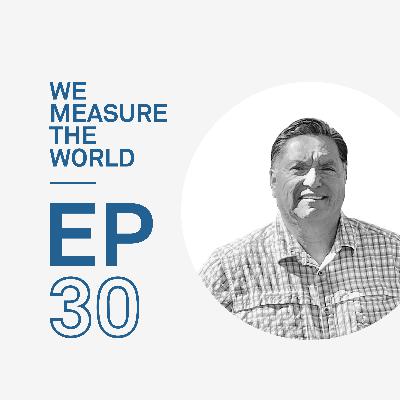Episode 29: The effect of insects on infiltration
Description
Dr. Darren Ficklin is an associate professor in the Department of Geography at Indiana University. He received his bachelor's in geological sciences at Indiana University, obtained his master's in geology at Southern Illinois University, and a Ph.D. in hydrologic Sciences at the University of California Davis. After completing his Ph.D., he stayed in California and did postdoctoral work at Santa Clara University. His current research focuses primarily on the intersection of hydrology and climate.
Podcast Transcript:
BRAD NEWBOLD 0:00
Hello everybody and welcome to We Measure the World, a podcast produced by scientists for scientists...
DARREN FICKLIN 0:07
Yeah. So if you're not familiar with Brood X Cicadas they come out of the ground every 17 years, and these are not, these are not flies. These are several inches in length and a half an inch. So they come out every 17 years, and essentially what happens is when they come out, they leave these gigantic holes in the ground about the size of a dime. And these burrows go about, they can go up to 60 centimeters deep. So they can go relatively deep. So they emerge from the soil. They make their way up the tree, they'll mate on the tree. And then the larvae or nymphs will fall to the ground, dig into the soil, and they stay there for 17 years. So the research question was essentially, how does this how do these burros affect infiltration?
BRAD NEWBOLD 0:57
That's a small taste of what we have in store for you today. We Measure the World explores interesting environmental research trends, how scientists are solving research issues, and what tools are helping them better understand measurements across the entire soil plant atmosphere continuum. Today's guest is Darren Ficklin. Darren Ficklin is an associate professor in the Department of Geography at Indiana University. He received his bachelor's in geological sciences there at Indiana University and then went on to get his master's in geology at Southern Illinois University and a PhD in hydrologic Sciences at the University of California Davis. After completing his PhD, he stayed in California and did postdoctoral work at Santa Clara University. His current research focuses primarily on the intersection of hydrology and climate. And today he's here to talk about his many research projects into watershed and soil hydrology, climate change, and bugs. So Darren, thanks so much for being here.
DARREN FICKLIN 1:52
Thank you for having me.
BRAD NEWBOLD 1:55
All right. So yeah, today, we wanted to talk about a few of your projects and research interests. But first, can you tell us a little bit about your background? And, and then how you became involved in hydrology?
DARREN FICKLIN 2:06
Yeah, that's a good question. So I'm, I'm from Indiana, Originally, I'm from about an hour south and I grew up in farmland. And I've always been interested in science. I have no idea why, some of these older, older folks listening may remember, Mr. Wizard, Bill Nye, I watched those all the time. I remember as a young kid, mixing mayonnaise, and ketchup and mustard and making my own chemical, chemical, chemical concentrations there and doing some weird stuff with that. But I've always been interested in science. I don't know really what happened with that. And as I grew older, I got to kind of be in the environment more. And so my dad worked for the USDA NRCS as a soil scientist, specifically what he did is he helped farmers around the region, limit erosion. So that I think that kind of steered me in the direction of the environmental science. And that was, that was essentially I was too young to know what that was. But as I grew up, in high school, I kind of could understand of, you know, what you can do in the environment. I was also really into computers at at the high school, I didn't understand them. In fact, I went to Indiana University, and I was originally a computer science major. And they threw me into a sophomore level course. And I had no idea what I was doing almost immediately. So that was, they threw me in and they were coding on the first day. So I did not understand what computer science was at that age. So I dropped that almost immediately. I talked to the advisor, one of the academic advisors at IU, and they they kind of steered me into this intro introductory geology course. And that was it, that basically, I took off from there, I really, really enjoyed it. And then as I took more and more classes, I took more hydrology classes in the upper levels. And that's really when when I took off as far as I was interested in hydrology, and I think a lot of that stemmed from my, you know, farming background and my dad's work with the USDA.
BRAD NEWBOLD 4:15
So, I guess that's kind of fun. This is one of the things that we hear often is that either Yeah, the the folks that are now in their specialties they are quite often didn't start where where they thought or didn't end up where they thought they would end up starting with one thing moving on to another. So going from computer science. So then did with your computer science background, and then geology. So I'm assuming that that GIS then became kind of one of your one of your go twos to connect the two.
DARREN FICKLIN 4:46
Yeah, so at undergraduate I started taking a lot of GIS courses as well. That was junior senior level courses, and specifically they were geological applications in GIS, where you would work on I work on my own erosion processes on a hillslope. That type of stuff really, you know, really kind of kind of gelled everything together. For me the computer science aspect. Yeah, I didn't understand that computer science was coding. At that time, I learned very quickly. I mean, now I can code but I didn't didn't understand it when I was entering the undergraduate curriculum.
BRAD NEWBOLD 5:20
Right. Well, let's talk, let's dive into some of your current research and or more recent research. A lot of a lot of what you've been working with, especially within the realm of hydrology is hydrology and Hydroclimatology. And and those kinds of they interplay between between climate change and variability and hydrological processes. Can you get, I guess, how did how did you go from from being, you know, working with? Let me back that up. So how did you come to focus more on on this, this, I guess, this interplay, the integration between climate and hydrology?
DARREN FICKLIN 6:03
Yeah, so my master's was in groundwater, groundwater hydrology, my PhD was in surface hydrology. So a lot of those are treated separately, they should not be treated separately, but a lot of them are treated separately. So that kind of gives me a little more general idea of the hydrological cycle. And as far as climate change goes, that really started when I was out in California, getting my PhD and it really started. You don't I don't realize this and when you're in the Midwest, but California exists because of its snowmelt snowpack. And I was really interested in how climate change was affecting those variables. So that's kind of what initially got me going on that. And then I took that a little step further and kind of worked on the agricultural aspect of climate change, specifically looking at water quality. I was looking at nitrates pesticide runoff in the Central Valley of California. And then that kind of led me directly in to my postdoctoral work, which, which was mainly on stream temperature, largely due because of the important aquatic species out west salmon, trout, that depend on a particular particular stream temperature to exist.
BRAD NEWBOLD 7:13
I'm interested in definitely in the the issues around hydrology within the inner mountain and arid west. I mean, that's that's kind of a big deal now. And it has been for a while, you know, ever since ever since people started living there, you know, water is is a scarce resource, in those more arid environments, and especially like what you were talking about with being dependent on on snow melt on that snowpack, for for that runoff for recharge, for all those other things that we're dealing with, what are some of the questions that you're interested in? And maybe some of the things that you learned? And in researching, particularly with in dealing with with kind of those those more snow dependent regions?
DARREN FICKLIN 7:58
Well, would you add climate change to the mix? It's not not pretty, right. So the snowpack barely exists, depending on what what climate change your projection you're looking at and working on. The snowpack barely exist at the end of the century, right. And it's largely due to air temperature, air temperature, precipitation falls that either snow is rain, right snow or rain. And when you have a higher temperature, it's more likely to fall as as rain. And then you put that on an existing snowpack. That wipes it up pretty quickly. So So that's we've done work in the Sierra, the Columbia and the Colorado, and they're all basically telling you the exact same thing, you know, when you increase air temperature, and and even when when precipitation is held steady compared to historical rates, snowpack still goes down. Yeah, so that's, that's generally a conclusion. And that's, that's not a new conclusion. There have been plenty of people looking at that. And still looking at that, and specifically, how these dynamics are going to change and whether these models can capture these dynamics, and then the you add the whole reservoir management aspect of that, which I don't do, but how are you going to manage no water or lack of water when when to release this water? For agricultural irrigation and environmental flows? It's extremely complicated.
BRAD NEWBOLD 9:15
Right, and yeah, I mean, personally speaking, I've

